French Prime Minister Michel Barnier announced on September 21 the formation of his government with 39 members from centrist and right-wing parties.
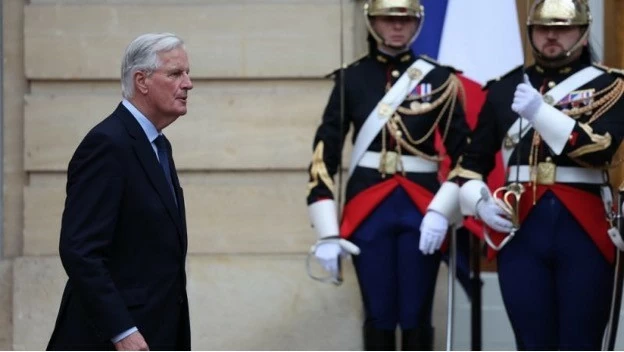 |
| The French prime minister's announcement ends a 67-day wait for a new government – the longest in modern French political history – and signals clear policy continuity rather than the change many had hoped for after last summer's extraordinary legislative elections. (Source: EPA-EFE) |
Of the 17 ministers, seven come from President Emmanuel Macron's centrist coalition and three from Mr Barnier's conservative Les Republicains party.
Among them, Mr. Jean-Noel Barrot was nominated to replace Mr. Stephane Sejourne as Minister of Europe and Foreign Affairs . Mr. Barrot, 41 years old, is an economist and served as Minister of the European Deputies in the previous government.
Bruno Retailleau was appointed as Interior Minister, in what French newspaper Le Figaro called a "symbol of determination" in restoring public order in France.
Mr Retailleau, a member of Prime Minister Barnier's party, promised on his X social media account to "restore order to ensure harmony" and reaffirmed his support for the police.
The post of Minister of Economy and Finance was given to Mr. Antoine Armand, 33 years old.
He now has to help Prime Minister Barnier present France's 2025 budget draft to parliament while trying to keep debt under control as required by the European Union.
However, the new government's list lacks candidates from left-wing and far-right parties, which are seen as relatively victorious in the extraordinary legislative elections.
Prime Minister Barnier's government immediately received criticism from left-wing parties. Socialist Party leader Olivier Faure condemned Mr Barnier's decision to form a centre-right government, saying his decision was "brazen" against democracy.
The leader of the far-left La France Insoumise party, the main party of the left-wing coalition in the most recent legislative elections, Jean-Luc Melanchon, said the government was formed by "the losers of the legislative elections".
The government "has no legitimacy and no future. It must be removed as soon as possible," he said on his X account.
The left-wing parties have announced that they will launch a vote of no confidence against the government in parliament, where they do not hold an absolute majority. They will need to count on the support of the far-right National Rally (RN) party.
As for the right-wing party, the RN, its former leader Marine Le Pen has expressed her disappointment with the new government.
On her X account, she said Mr Barnier's government was a "transitional" one and called for "major change".
For her, the government announced on the evening of September 21 is essentially a reformed old government rather than a newly formed one.
On September 5, Mr Macron nominated Mr Barnier, a former Brexit negotiator, as the new prime minister.
Mr Barnier said he wanted to address the “challenges, anger, pain, feelings of abandonment and injustice” the country was currently experiencing.
After forming a government, Prime Minister Barnier's urgent task now is to complete the draft budget for 2025 by October 1 and submit it to Parliament for a vote.
Source: https://baoquocte.vn/phap-cong-bo-chinh-phu-moi-sau-2-thang-cua-cuoc-vou-cu-bat-thuong-gay-chia-re-287231.html


![[Photo] President Luong Cuong presents the 40-year Party membership badge to Chief of the Office of the President Le Khanh Hai](https://vphoto.vietnam.vn/thumb/1200x675/vietnam/resource/IMAGE/2025/5/19/a22bc55dd7bf4a2ab7e3958d32282c15)
![[Photo] General Secretary To Lam attends the conference to review 10 years of implementing Directive No. 05 of the Politburo and evaluate the results of implementing Regulation No. 09 of the Central Public Security Party Committee.](https://vphoto.vietnam.vn/thumb/1200x675/vietnam/resource/IMAGE/2025/5/19/2f44458c655a4403acd7929dbbfa5039)
![[Photo] Close-up of Tang Long Bridge, Thu Duc City after repairing rutting](https://vphoto.vietnam.vn/thumb/1200x675/vietnam/resource/IMAGE/2025/5/19/086736d9d11f43198f5bd8d78df9bd41)

![[Photo] Panorama of the Opening Ceremony of the 43rd Nhan Dan Newspaper National Table Tennis Championship](https://vphoto.vietnam.vn/thumb/1200x675/vietnam/resource/IMAGE/2025/5/19/5e22950340b941309280448198bcf1d9)



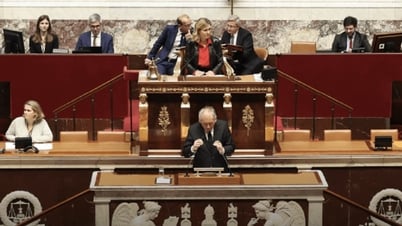
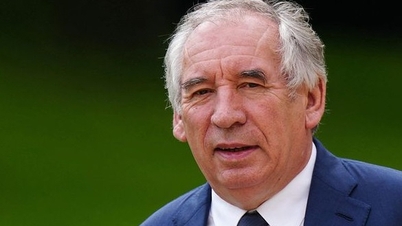
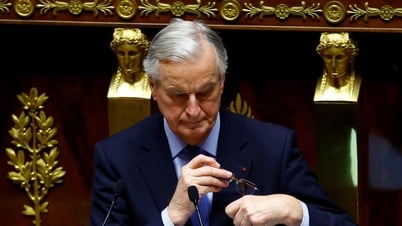

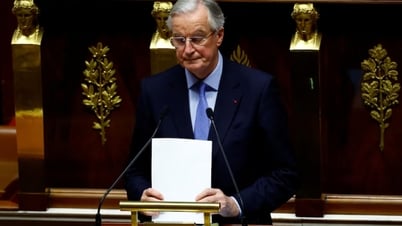



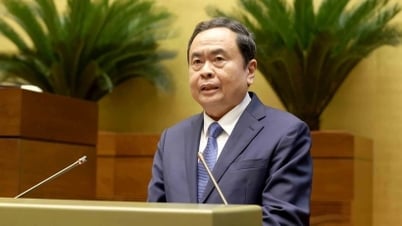
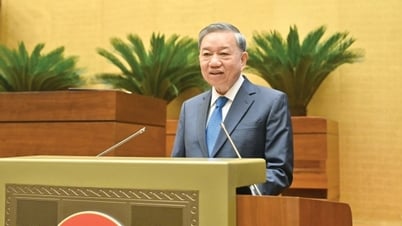













![[Photo] Prime Minister Pham Minh Chinh inspects the progress of the National Exhibition and Fair Center project](https://vphoto.vietnam.vn/thumb/1200x675/vietnam/resource/IMAGE/2025/5/19/35189ac8807140d897ad2b7d2583fbae)





























































![[VIDEO] - Enhancing the value of Quang Nam OCOP products through trade connections](https://vphoto.vietnam.vn/thumb/402x226/vietnam/resource/IMAGE/2025/5/17/5be5b5fff1f14914986fad159097a677)



Comment (0)